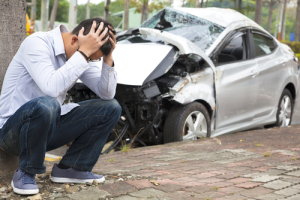November 11, 2014
No one wants to think about it: a beloved family member is seriously injured in an accident and we’re faced with a range of emotion, logistics and questions. What would you do if you found yourself in this situation? Do you know? A lot of people aren’t sure, because our aversion to thinking about this kind of scenario is sort of paralyzing. But, it’s helpful to approach it with the notion that thinking about it isn’t wishing for it; it’s doing our best to control what we can control before the fact, so that a horrible situation, if it does occur, doesn’t get worse.
Take these steps ahead of time:
- Make an emergency contact list that the whole family has access to. Include:
 A point person in your family who can communicate news to other members of the family and other important people in your life.
A point person in your family who can communicate news to other members of the family and other important people in your life.- Your family health insurance customer contact and your policy and group number.
- A lawyer you trust in the case that there is liability involved (which is often).
- A co-worker or supervisor who can help you to manage any work obligations.
- Your family physician.
- Your family support professional or guide: this can be your mental health professional or social worker, your church leader or someone from any group in which your family receives emotional, spiritual and psychological support.
- A friend or neighbor who can look in on your pets and your home.
- A trusted caregiver or babysitter who can take care of your children, or elderly loved ones if you need to focus on your injured loved one.
- Understand your insurance and the law.
Insurance policies can be complicated, and at times, frustrating. That doesn’t mean you should ignore them. Instead, take some time to regularly review your policy and if necessary, talk to your insurance agent and/or lawyer about it. It’s really important to have a sense of how your policy will cover you in such an unfortunate event. Make sure you know things like:
- What your co-pay, coinsurance and deductible are.
- What services need pre-approval.
- How out of state claims are handled.
- Who your network providers are.
- How emergency services are handled.
Also: it doesn’t hurt to have a bank account exclusively reserved for medical emergencies. You can have a specific debit card for that and a clear idea of your balance, so you don’t experience added financial stress at the outset.
Having a basic understanding of what you should do (and are entitled to) in the case of an accident, from the legal perspective, is also very helpful. Reporting accidents, not leaving the scene, collecting information from those involved—these are all things that could help your family, if each member knows how to go about them. It’s worthwhile to have a conversation with your lawyer about this, to help you feel prepared.
Preventative measures like these could make the all the difference for you, if you were faced with this kind of situation.
